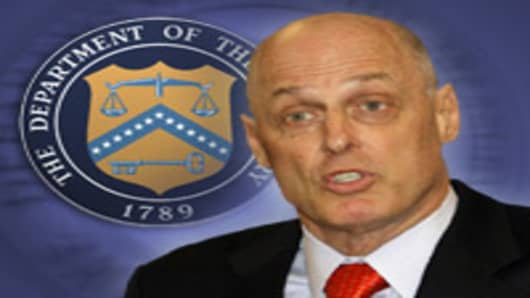U.S. Treasury Secretary Henry Paulson is expected to urge that the Federal Reserve be given new powers to regulate Wall Street after the collapse of brokerageBear Stearns, U.S. media reported on Wednesday.
In a speech to be delivered on Thursday, Paulson will say that the fall of Bear Stearns has expedited the need for the government to address the "outdated" regulatory oversight structure while not intervening too much in the functioning of markets, The Wall Street Journal and The Washington Post said.
"We should quickly consider how to most appropriately give the Fed the authority to access necessary information from highly complex financial institutions and the responsibility to intervene in order to protect the system, so they can carry out the role our nation has come to expect - stabilizing the overall system when it is threatened," Paulson will say, according to prepared remarks obtained by the newspapers.
Bear Stearns, once the fifth-largest U.S. investment bank, was sold in March to JPMorgan Chase in an emergency takeover deal orchestrated by the U.S. central bank in close consultation with the Treasury Department.
In a speech earlier this month, New York Federal Reserve President Timothy Geithner said regulatory reforms should mitigate and reduce the need for future interventions, but that it was not realistic to attempt pre-emotively to diffuse pockets of risk and leverage.
"I do believe, however, that we can make the system better able to handle failure by making the shock absorbers stronger," Geithner said.
The Bear Stearns takeover came after the firm's sudden collapse, when investors and trading partners withdrew their business and their cash from a bank heavily exposed to the U.S. mortgage crisis.
Top U.S. regulators defended the rescue arguing that Bear Stearns could not be allowed to collapse because it could have shattered confidence in financial markets and caused lasting damage to the economy.
It was the Federal Reserve's first rescue of a broker since the Great Depression in an effort to soothe financial markets roiled by fallout from rising mortgage defaults.


